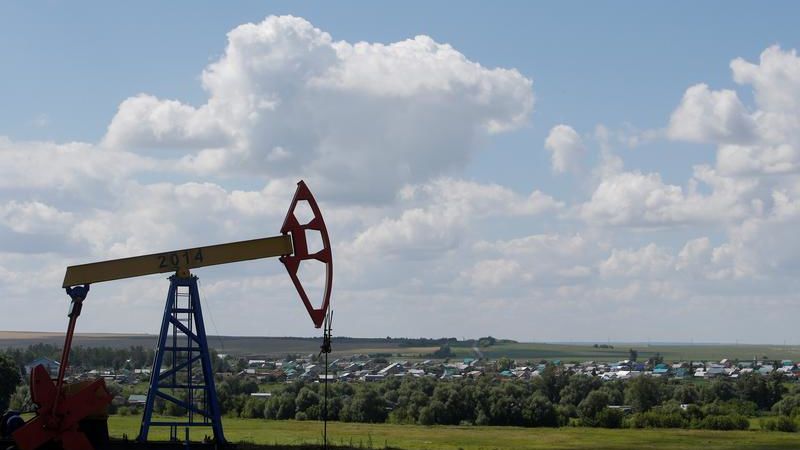The war in Ukraine has shed an unflattering light on the ability of large US financial firms to manage geopolitical risk, a type of risk that relies more on qualitative and subjective analysis than models and spreadsheets
Whether the billions of dollars in losses linked to Russia’s invasion of Ukraine and subsequent Western sanctions have prompted big banks to increase their geopolitical expertise remains unclear. It is by no means certain that they are ready for the next major crisis, experts say.
“Geopolitical risks affecting banks or banks’ customers have expanded significantly in recent years,” according to a global survey report issued late last year from consulting firm EY. However, it added, “only a subset of chief risk officers (CROs) recognize this.”
Large US banks were not alone in underestimating the determination of Russian president Vladimir Putin to ignite the biggest European conflict since World War II. Many companies, both financial and non-financial, were caught off guard, despite Putin having telegraphed his intentions for months in advance. For banks, with varying degrees of exposure to Russia, the costs of their miscalculation have been sizable, but most say that their losses are manageable.
Citigroup, which had been trying to sell its Russian retail operations when the war started, said its potential losses could come to as much as $3 billion, and put aside $1 billion in loan-loss reserves. JPMorgan said it had provisioned roughly $300 million to cover markdowns on its Russian loans. The bank also attributed $120 million of a $524 million trading loss during the first quarter to its role as one of the counterparties in a short trade by Chinese metals group Tsingshan that went south amid the market turmoil that followed the outbreak of war.
Goldman Sachs, meanwhile, which in February disclosed that its Russian exposure was $650 million, said it had suffered a net loss of about $300 million on investments in Russia and Ukraine.
US banks’ complacency
What may be more worrying than the financial losses, say experts, is the mindset of those leading large US institutions and a sense of complacency regarding the risks of doing business abroad.
“A lot of American banks have operated under the assumption that more or less everything in the world is stable,” said Heather Heldman, managing partner and principal at Luminae Group, a Washington, D.C.-based geopolitical risk consulting firm.
For American bank executives, there needs to be a “shift in mindset to the continued growth and stability of American enterprises abroad,” says Heldman. Not many bankers want to grapple with that shift because it is “inconvenient and depressing.”
Geopolitical risks affecting banks or banks’ customers have expanded significantly in recent years… [yet] only a subset of chief risk officers recognize this.
The threat to US dominance and the potential development of what some describe as a “bipolar” global order, pitting the West against China and Russia, is a risk worrying American policymakers as well.
Speaking to the Atlantic Council recently, US Treasury Secretary Janet Yellen warned that it is imperative for the United States to work with China to avoid a bipolar monetary order emerging from the war in Ukraine and ongoing geo-political conflicts. “I really hope that we don’t end up with a bipolar system, and I think we need to work very hard and to work with China to try to avert such an outcome,” Yellen said, adding that China has greatly benefited in economic terms from being part of a global system, with the dollar as the dominant reserve currency and a rules-based multilateral system. “I would like to see us preserve the benefits of deep economic integration with China, not going to a bipolar world, but clearly that’s a danger that we need to address.”
Indeed, in its most recent “geopolitical risk dashboard,” the BlackRock Investment Institute put a technological decoupling between China and the United States as the third highest risk, with a widening of the conflict in Ukraine between NATO and Russia and major cyber-attacks causing significant damage to infrastructure and financial markets seen as the top two risks.
“The Ukraine war is likely to drive geopolitical fragmentation and the emergence of blocs, in our view,” BlackRock said in its report. “Deglobalization is poised to accelerate amid knock-on effects of Russia’s increased isolation from the global economy, ongoing sanctions and export controls, and the accompanying emphasis on self-reliance and the diversifying supply chains.”
How are large banks managing geopolitical risks?
Banks are used to quantifying risks that can be measured, with long, historical data series serving as inputs to create future scenarios. Geopolitical risk, however, is unlike credit, liquidity, or counterparty default risk. There are no reliable historical streams of data that one can easily plug into a model. Major geopolitical events can often arise quickly and unpredictably.
The EY survey last year on bank risk management noted that chief risk officers “may be underestimating the potency of political change… (with) only about half viewing (geo)political risks as among the most important emerging risks over a five-year horizon — this is down from 60% in our last survey in 2019. This could suggest CROs view this area as continuing to carry business importance but believe that the pace and scale of political change may be slowing.”
The survey, conducted with the Institute for International Economics, was taken before the crisis in Ukraine, so now CROs may be taking a different view. Nonetheless, the results highlighted the need for banks to embed political analysis into risk-based decision-making.
“The degree to which banks systematically analyze political risks varies across the industry. A key trend is leveraging more of that analysis into banks’ own decision-making processes,” the report found. “Nearly half of bank CROs (48%) plan to broaden methods for identifying new or emerging political risks and a quarter plan to build new tools for qualitative tracking and reporting on political risk measures.”







